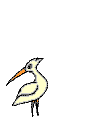 S.A.B.D.A
AND THE ENVIRONMENT
S.A.B.D.A
AND THE ENVIRONMENT
 S.A.B.D.A
AND THE ENVIRONMENT S.A.B.D.A
AND THE ENVIRONMENT |
| Much has been said by "environmentalists" (usually nimbys who don't like us in their territory) and other vested interests about the damage done to the marine inter-tidal habitat by bait diggers all of this is pure speculation as to our knowledge not one single meaningful study into the long term effects of commercial bait digging has ever been carried out. |
| It is hardly environmentally friendly to replace the forty or so commercial bait diggers that currently dig in the Solent area with up to forty thousand anglers digging their own which is what will happen if you ban all commercial bait digging. |
| A ban on bait digging would discriminate against all people who could not dig their own, i.e. the disabled, the elderly, lady anglers and children as well as others with work commitments. |
| It would be dangerous for the inexperienced to venture onto the mud to dig their own worms nearly every year people are having to be rescued from mudflats locally as it is. Even some of our own members have had to be rescued, most notably Paul Bossuot who was saved by a passing trawler when he walked the wrong way in the fog off Whale island and very nearly drowned. |
| Much has been made
of the availability of farmed bait. Farmed bait is not a viable option
as (a) the farms (of which there are only two) are too far away to provide
a spontaneous service, (b) farmed bait is twice the cost of locally dug
ragworm (c) the farms are struggling to produce enough worms to fulfil
their current commitments without having to provide more. For example there
are an estimated one million sea anglers in this country, if only one third
of them fish regularly and they only used five pounds of worms each in
a year (which is a very conservative estimate) they would use between them
seven hundred and forty four tons of bait. Currently the farm in Morpeth
Cleveland (Sea baits which is by far the bigger of the two farms) produces
fifty tons (increasing to one hundred by 2003) of which fifty percent is
exported abroad. (Figures supplied by Sea baits Morpeth.) The other farm
in Swansea (Dragon baits) produces ten tons of worms (figures supplied
by Dragon baits). This leaves a shortfall of seven hundred tons of worms
some of which is imported from Holland and Ireland in the winter when transporting
conditions are favourable. Even allowing for this some six hundred plus
tons of worms are provided by commercial diggers.
If this right is taken away it will destroy the angling trade and put thousands of angling dependant jobs at serious risk. We as an organization would much rather see a licensing system put in place; this would reduce pressure on our bait beds as it would deter the cowboy element who would ignore any ban anyway. It would also stop the annual invasion of solent bait beds by diggers from Southend and Dover. A licensing system would also be self policing in that that genuine diggers would not tolerate the unlicensed element. |
| There has not been any scientific evidence put forward to make a compelling argument to ban commercial bait digging. In our opinion as an organization with hundreds of years of combined experience of this, bait digging when carried out properly creates a better environment in that pools are created where small marine life forms can flourish; weed and debris collects providing cover for crabs and shellfish, this in turn makes for better feeding grounds for birds. All studies have shown local harbour bird populations to be on the increase; this gives lie to the argument that commercial bait digging is damaging to their environment. In fact one has only to visit somewhere like Budds farm at Bedhampton which is the heaviest dug beach in the Solent area and observe the hundreds of feeding seabirds to see this. |